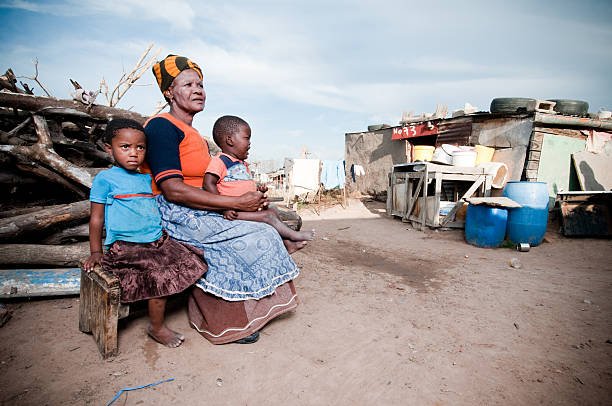Reasons Why Most South African still Live under Filthy Conditions: Despite South Africa’s status as an upper-middle-income country, a significant portion of its population continues to live under unsanitary and unhealthy conditions. These living conditions are attributed to various factors, including historical legacies, economic inequality, inadequate public infrastructure, and lack of proper waste management.
Reasons Why Most South African still Live under Filthy Conditions
Below, we look into the reasons behind the persisting problem of filthy living conditions in South Africa.
Historical Legacies
The apartheid system, which governed South Africa from 1948 to 1994, had a lasting impact on the country’s social, economic, and spatial landscape. Under apartheid, non-white populations were forcibly removed from urban centers and relocated to segregated townships with limited resources and infrastructure. As a result, many of these areas continue to struggle with inadequate sanitation, overcrowded housing, and poor waste management.
Economic Inequality
South Africa has one of the world’s highest levels of income inequality. This disparity in wealth distribution means that a large proportion of the population is unable to access adequate housing, clean water, and sanitation facilities. Many South Africans live in informal settlements, also known as shantytowns or squatter camps, where basic infrastructure and services are lacking. In these settlements, residents often rely on communal water sources, pit latrines, and open defecation, contributing to unsanitary conditions.
Inadequate Public Infrastructure
The South African government has made efforts to improve living conditions in historically disadvantaged areas, but progress has been slow. Providing access to basic services, such as water, sanitation, and electricity, remains a significant challenge. In many cases, the existing infrastructure is insufficient to meet the needs of the rapidly growing population. This deficiency leads to overburdened and poorly maintained systems, resulting in contamination of water sources, sewage overflows, and uncollected waste.
Lack of Proper Waste Management
South Africa faces considerable challenges in terms of waste management, particularly in underprivileged areas. Inadequate waste collection and disposal services contribute to the accumulation of litter and illegal dumping, which can pose serious health risks to local residents. The lack of recycling facilities and waste reduction initiatives exacerbates the problem, leading to environmental degradation and further health hazards.
Rapid Urbanization
South Africa is experiencing rapid urbanization, with more people moving to cities in search of better economic opportunities. This population influx has led to the growth of informal settlements, which often lack proper planning and infrastructure. As a result, new residents are forced to live in unhealthy and overcrowded conditions, with little access to basic sanitation facilities.
Conclusion
The persistence of filthy living conditions in South Africa is a complex and multifaceted issue. Addressing the problem requires a comprehensive approach that acknowledges the historical, economic, and infrastructural factors at play. By investing in improved public infrastructure, promoting equitable economic growth, and implementing effective waste management solutions, South Africa can work towards ensuring that all of its citizens have access to clean and healthy living environments.

